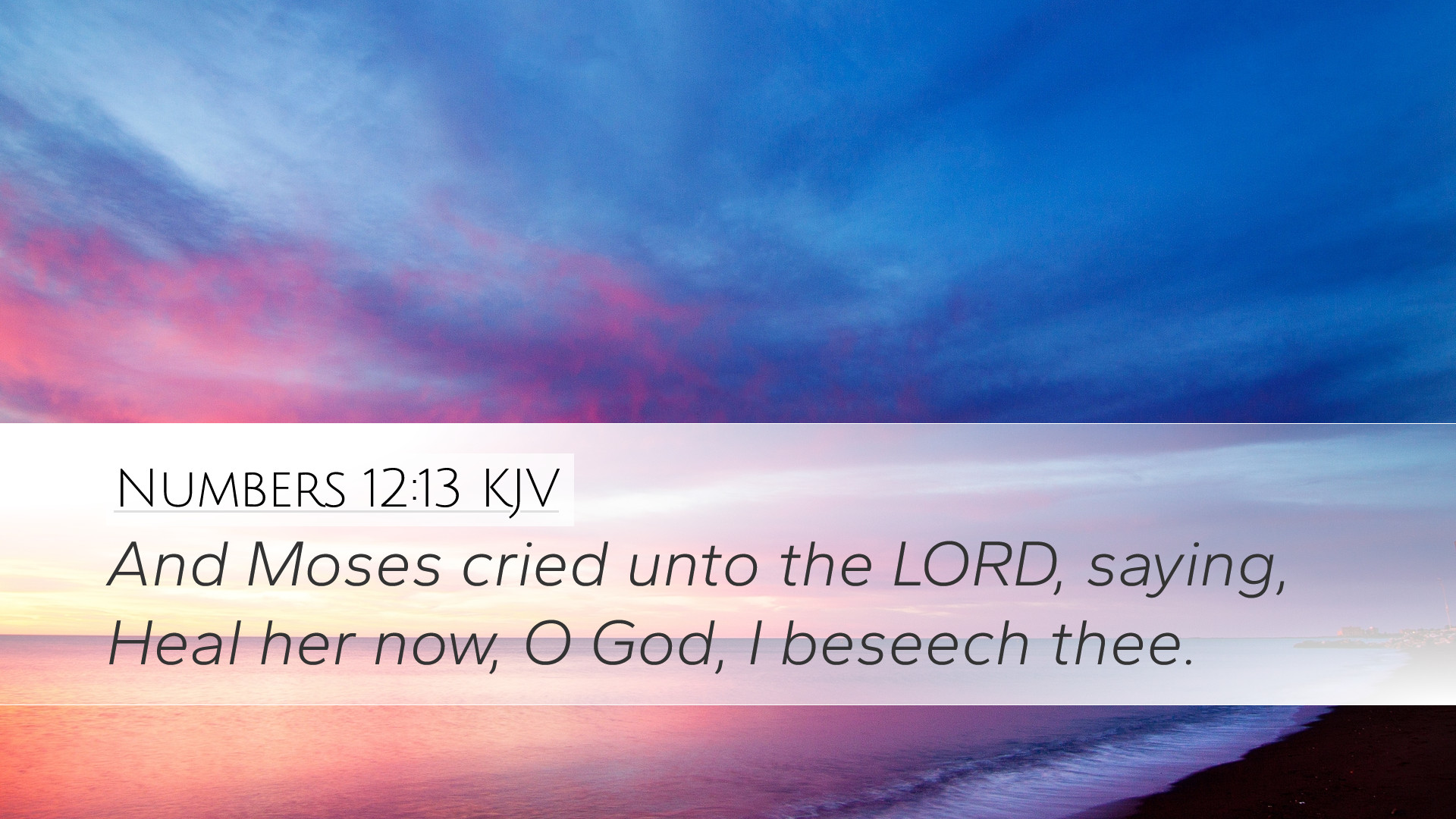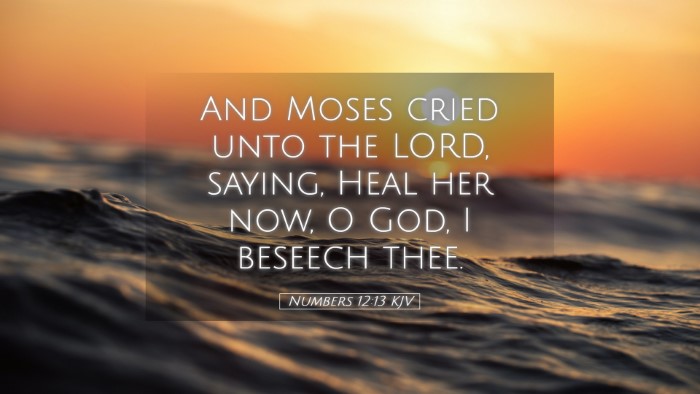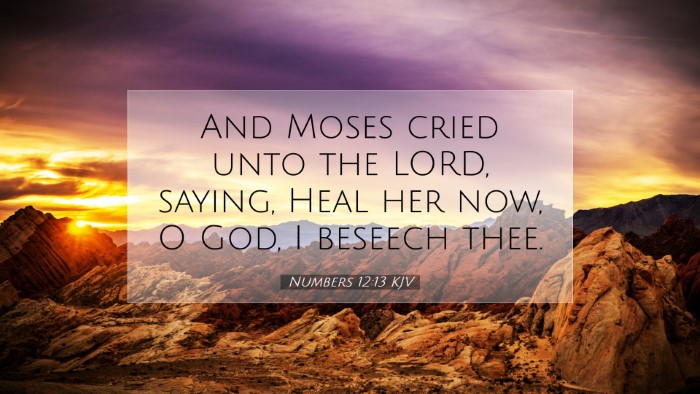Bible Commentary on Numbers 12:13
Verse Analysis: Numbers 12:13 states, "And Moses cried unto the Lord, saying, Heal her now, O God, I beseech thee.". This occurrence highlights a critical moment in the narrative of Moses, Miriam, and Aaron, where the tension reaches a peak due to Miriam's leprosy, a punishment from God for her actions against Moses.
Contextual Background
This verse falls within a significant episode in the Book of Numbers, where God addresses issues of leadership and authority among the Israelites. As God’s chosen leader, Moses faced turmoil not only from external challenges but also from within his own family. Miriam's push against Moses’ position reveals the underlying struggles of authority, humility, and the interpersonal dynamics among God's chosen people.
The Cry for Healing
Moses' response to Miriam’s condition is immediate and prayerful. This illustrates his role not just as a leader but as a mediator and intercessor. Moses, despite being the target of Miriam's envy, demonstrates profound compassion:
- Pleading Heart: The phrase "Heal her now" indicates urgency and deep concern. Moses’ beseeching shows a heart that prioritizes healing over vindication.
- Divine Intercession: Moses' action exemplifies the power of prayer and intercession in the life of a believer. His cry serves as a reminder that in times of crisis, addressing God in prayer is paramount.
Theological Insights
This episode carries significant theological weight. It highlights the nature of God's judgement balanced with His mercy:
- Affliction as Correction: Miriam’s leprosy can be seen as a corrective act by God. Such afflictions serve both to articulate divine disapproval and to call the errant back to repentance and humility.
- God’s Compassion: The promptness of Moses’ prayer reveals God’s willingness to respond with mercy. It points towards the character of God as one who invites prayers for healing, suggesting a continual relationship based on intercession.
Insights from Public Domain Commentaries
Matthew Henry's Perspective
Matthew Henry elucidates the depth of Moses' prayer, noting that it was filled with earnestness and charity. He views Moses' plea as embodying the spirit of forgiveness and grace that leaders must exhibit, showcasing that personal grievances should not hinder collective wellness.
Albert Barnes' Commentary
Albert Barnes emphasizes the significance of Moses’ role in the context of divine leadership. He interprets this plea as a characteristic of a good leader who, despite personal betrayals, seeks the restoration and well-being of those in his fold. Barnes argues that this episode foreshadows the role of Christ as an intercessor for humanity, illustrating a model of how leaders should respond to sin and suffering among their people.
Adam Clarke's Analysis
Adam Clarke offers thoughts on the nature of Moses’ leadership style, highlighting his humility and commitment to prayers for others. He reflects on the implications of communal prayer, demonstrating how it brings unity and divine intervention. Clarke asserts that this moment speaks to the importance of leaders who intercede for their followers, further reinforcing the connection between leadership, responsibility, and divine favor.
Application for Today’s Church
This passage has profound implications for modern church leadership, illustrating essential characteristics:
- Intercession: Church leaders today must embody a spirit of intercession, praying for those under their care and advocating for them in the face of challenges.
- Responding to Conflict: Just as Moses showed compassion over resentment, leaders are called to address dissent and conflict with love and prayer rather than with anger or retaliation.
- Humility in Leadership: Leaders should recognize that their authority is not for self-promotion but for the service of others, embodying the humility Christ exemplified.
Conclusion
Numbers 12:13 serves as a poignant reminder of the dynamics of divine authority, compassion, and leadership within the community of faith. It challenges current leaders to reflect on how they navigate interpersonal relationships amid challenges. May the example of Moses foster a desire for robust prayer life and a compassionate response to those who may falter.


